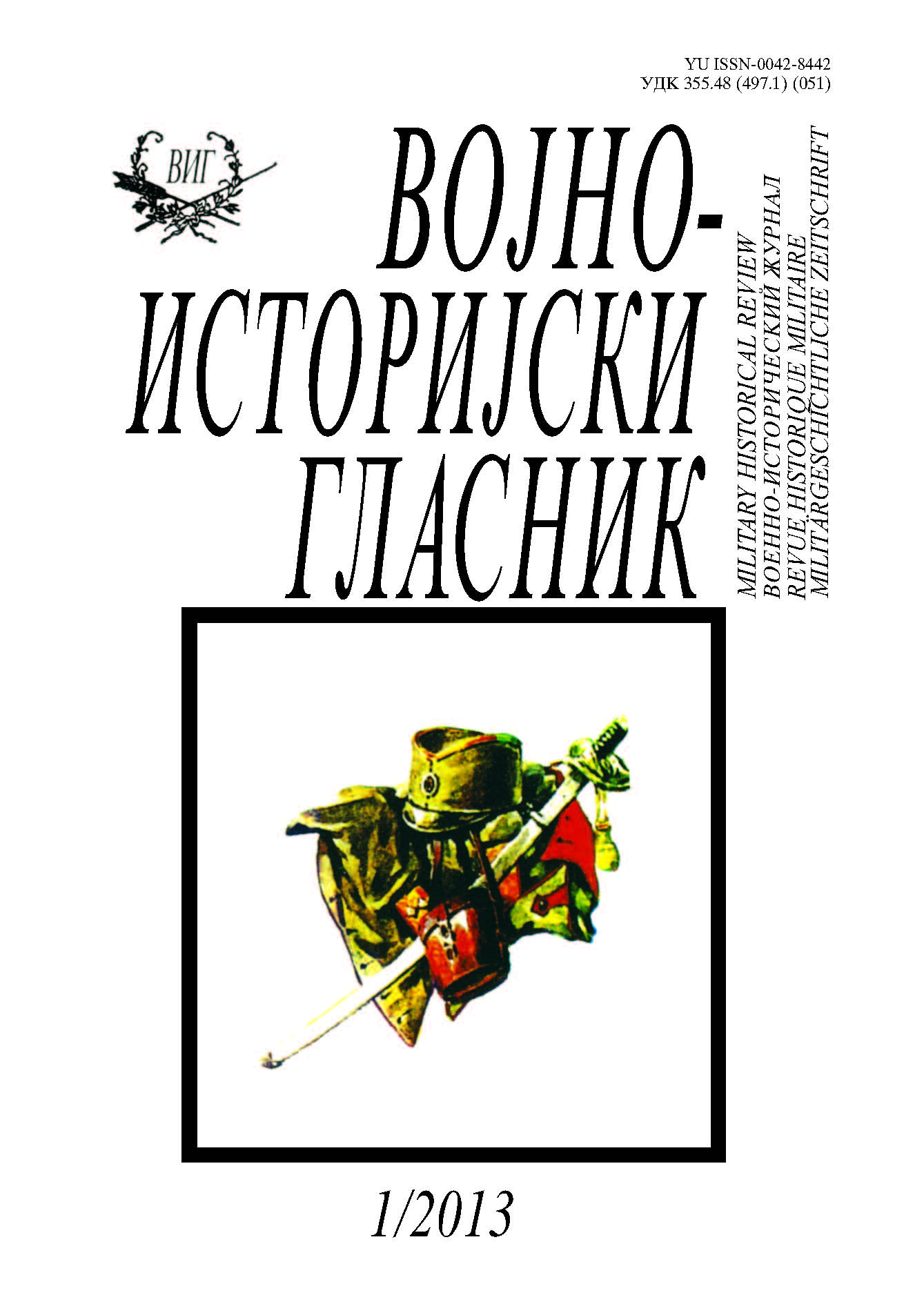СРБИ И „ДУГА ВОЈНА“ 1443/1444. ГОДИНЕ
SERBS AND “LONG CAMPAIGN” 1443/1444
Author(s): Milomir MaksimovićSubject(s): History, Military history, 15th Century
Published by: Institut za strategijska istraživanja
Summary/Abstract: In the long history of the crusades, the Long Campaign was the only “holywar” against the “enemies of Christianity” in which Serbs took part, and it wasthe only crusade which was led by a Serbian ruler. Also, it was the only crusadewhich had had, as one of its leaders, an Orthodox Christian monarch. DespotGeorge (Đurađ) Branković saw an opportunity for the restoration of the Serbiandespotate in this campaign. However, it should be noted, that the idea of acrusade, under the Pope’s patronage, in which the Ottomans would be expelledfrom Europe, was present in the minds of the Serbian rulers, since the time of the tsar Stefan Dušan. In the Long War, Serbs had a significant role, especiallydespot George. He was one of the main propagators of the war and one of its main financiers (His estimated wealth of 170 000 ducats, which he deposited in Dubrovnik, show that he was among the wealthiest monarchs of his time). He was also most experienced strategists, a highly-esteemed member of the War Council, whose opinion was always welcomed in critical situations. Historical sources call him ''pathfinder''- considering his engagement in wars of Bayazit's sons, he had excellent knowledge of paths between Belgrade and Consantinople,. During the campaign despot had a couple of conflicts with John Hunyadi, the campaign’s main strategist. The first onflict was in 1443, concerningthe continuation of war operations during the cold winter, and the second onewas in January of 1444, concerning the retreat of the army into Hungary. If weaccept modern historical estimates, that the crusader army numbered around 25 000 warriors, and considering the claim from cardinal's letter, that 8000 Serbian cavalry and infantrymen under the despot's command were part of that army, along with despot’s troops that marched from Hungary, as true, then the conclusion is that the Serbs (and others under despot’s command) made up the third of the Christian coalition's entire force. During the war operations a significant part of the Serbian Despotate had been liberated (territory placed between various cities and castles: Teočak–Belgrade–Bovan–Niš–Pirot–Novo Brdo–Srebrenica). The retreat of the crusade army caused these achievements to be only temporary. Hungarian delay of new war operations and renewed Ottoman conquest of Serbian cities had forced despot George into an attempt to restore his Despotate peacefully, through negotiations with the sultan, which, in turn, had huge consequences for the next crusader campaign, that ended withthe defeat of Christian forces at Varna. It is worth mentioning that two greatestvictories of Christian forces, the one at Niš and the one at Kunovica, because ofwhich the contemporaries gained an impression of triumph over the Ottomans,were achieved on the battlefields of Serbian Despotate. The bold campaign of1443–1444 was the deepest breakthrough of the Christian armies into the territoryof Ottoman empire, up until the Great Turkish war of 1689 and Russian-Turkish war of 1878. Even though this campaign is generally considered as unsuccessfulby the western historians, from the Serbian perspective, it was veryimportant in context of the restoration of the Serbian state in summer of 1444.
Journal: Vojnoistorijski glasnik
- Issue Year: 2013
- Issue No: 1
- Page Range: 45-70
- Page Count: 26
- Language: Serbian

